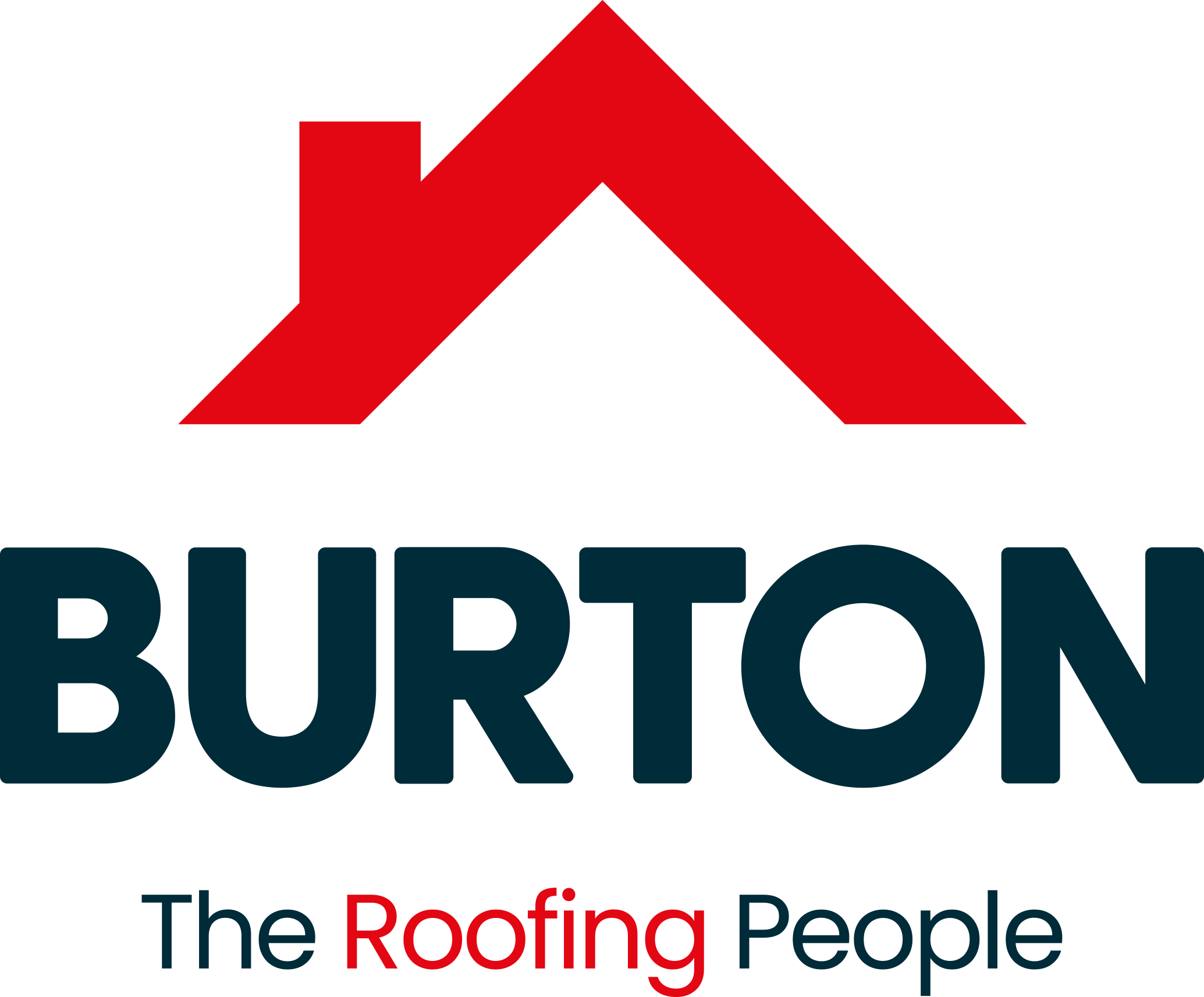The Great British Rake-Off

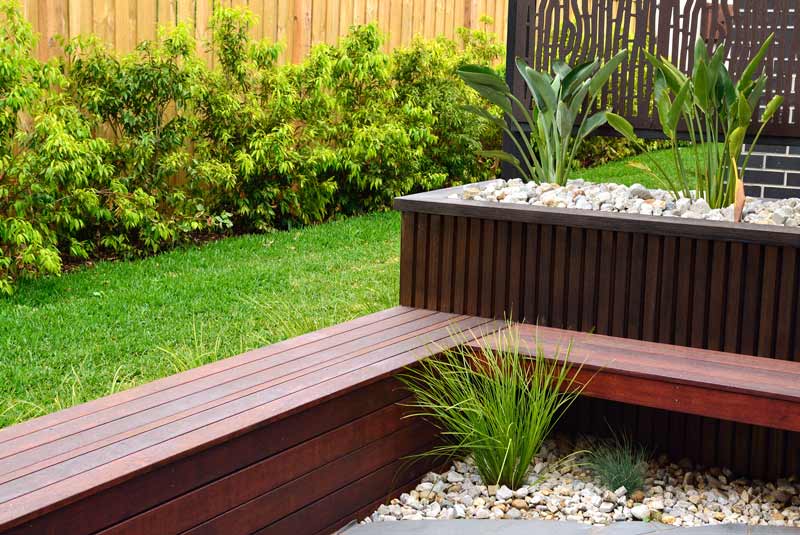
In this strangest of years, many of us have been looking for ways to fill our time, as we continue to spend more time at home than ever before. Some people have used this time to improve their garden area to make the most of what remains of summer.
Eco-friendly issues and green spaces are a hot talking point at the moment, and here at Burton Roofing we wanted to dig a little deeper. We conducted a survey of 2,500 UK homeowners to learn more.
Specifically, we wanted to know just how many of us are plotting a makeover of our outdoor spaces? And interestingly, how many UK homeowners would consider the environmental impact of their project before starting? A clue, it might be more than you think.
The Future is Green
The nature of life right now means that meeting friends and family outdoors is more attractive than ever, and our research suggests that UK homeowners are wasting no time in improving their outdoor spaces.
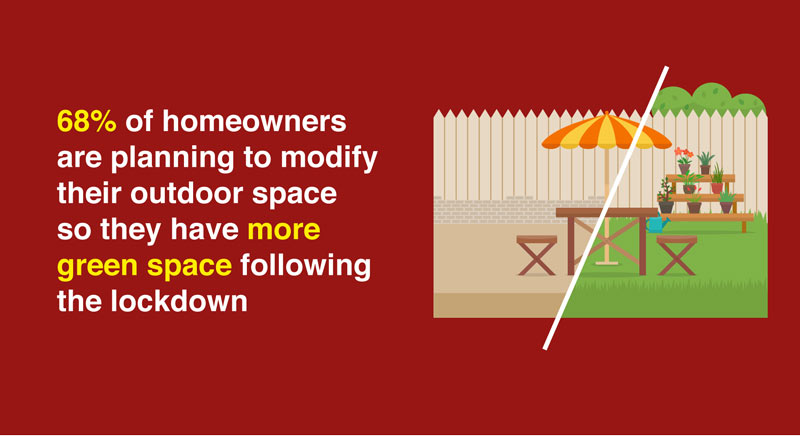
A massive 68% of those surveyed said that they were planning to convert their garden as they were keen to have more green space.
Considering the Environment
Green issues are more relevant than ever nowadays, and our research shows that almost a third of UK homeowners (29%) would consider the environmental impact of any home or outdoor improvement project before they started it.
That figure may surprise some, and the finding that many homeowners would consider the sustainability of their materials before starting a project (28%) further underlines the fact that a sizeable chunk of homeowners are willing to consider the environment when improving their home.
‘Don’t Want to Spend a Pretty Penny’
The current situation has encouraged many of us to pick up our tools to adapt our outdoor space, whether it be converting a flat roof area or an improved garden area. Whilst the findings suggest that many homeowners are considering the environment, that isn’t the primary concern for ‘Handy Andies’.
Homeowners consider the cost of materials (68%), potential long-term savings of the improvement (41%), and the aesthetic improvement they make (60%).
All three factors are considered more regularly than the long-term impact to the environment (30%) or the sustainability of the materials that they are using (28%).
Might Pay a Little Extra
All of us love a bargain – who doesn’t? Something that is proven by our previous finding that homeowners consider the cost of materials above any other factor when starting a project.
That said, a large chunk of those surveyed said that they would be willing to stretch their spending a little further if it helped them to be eco-friendly. 61% of the homeowners surveyed said that they would be willing to pay more for DIY tools and materials if they were eco-friendly, with 32% of people
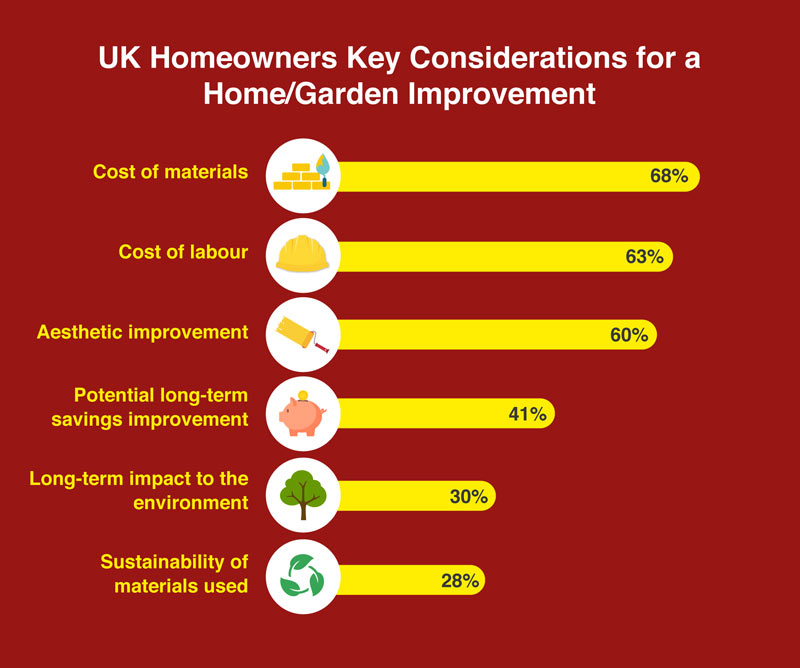
saying that they would pay 20% more for eco-friendly tools. 15% even said they would pay a full 30% more.
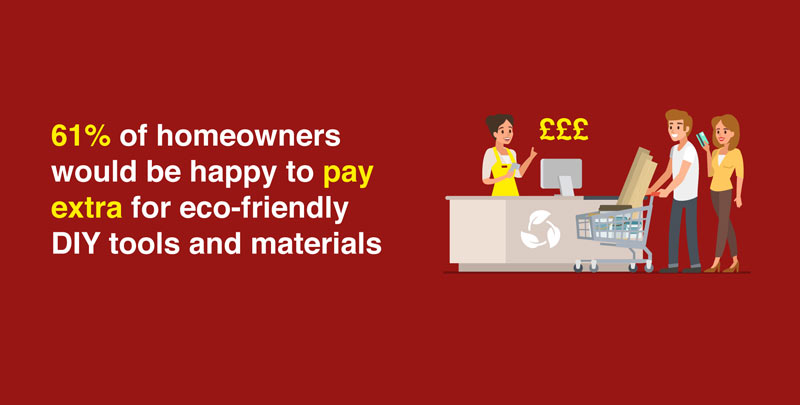
Age Gap
Environmental issues are being talked about more frequently in recent years, yet in the context of home improvement projects, they appear to matter more to certain age groups.
Of those surveyed, the age group that was most concerned about the sustainability of their materials was 25-34 years olds (40%), with 45-54 year olds the least concerned overall (16%).
35-44 year olds are the group that is most concerned by the long-term impact on the environment of their work (37%), with 65+ year olds the least likely to take this into consideration (17%).
Of the 2,500 surveyed, men were slightly more likely to take the environment into account when planning a home improvement (35%), compared to women (24%).
London Calling
A search for the homeowners most likely to consider the sustainability and impact of their home improvement project takes us to the capital, with Londoners (44%) by far the most likely to consider the environment in their planning. They are a clear stretch ahead of the next city on the list, Bristol (40%). Lagging behind on 4.5% are homeowners in Edinburgh, who go down as the least likely to consider sustainability before starting a project.
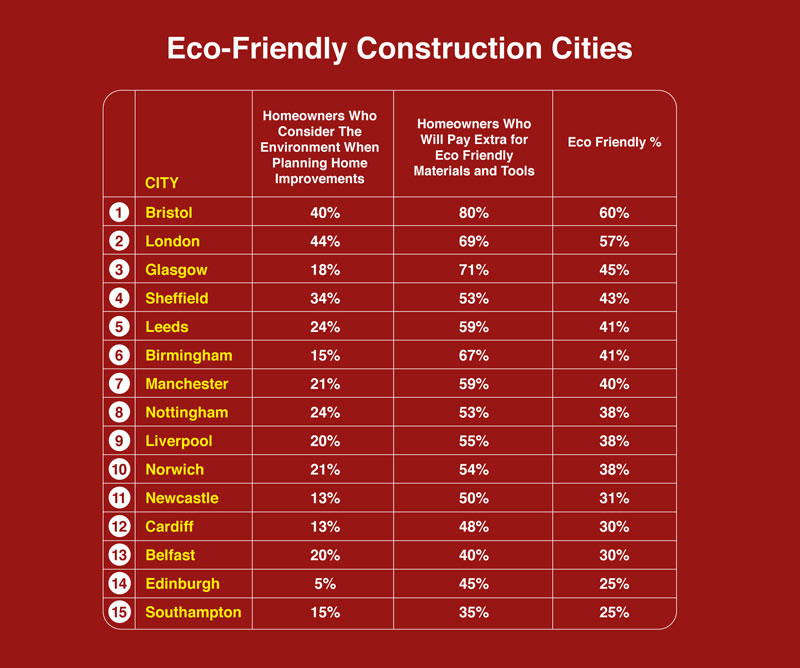
Leading the charge when paying extra for eco-friendly tools are Bristolians, with 80% willing to pay more. Glaswegians (71%) and Londoners (69%) are also keen, whilst the people of Southampton (35%) go down as the least willing to spend any extra for something eco-friendly.
Whether eco-friendly or not, make sure you plan out any prospective work in detail, and wear the correct protective equipment throughout.
